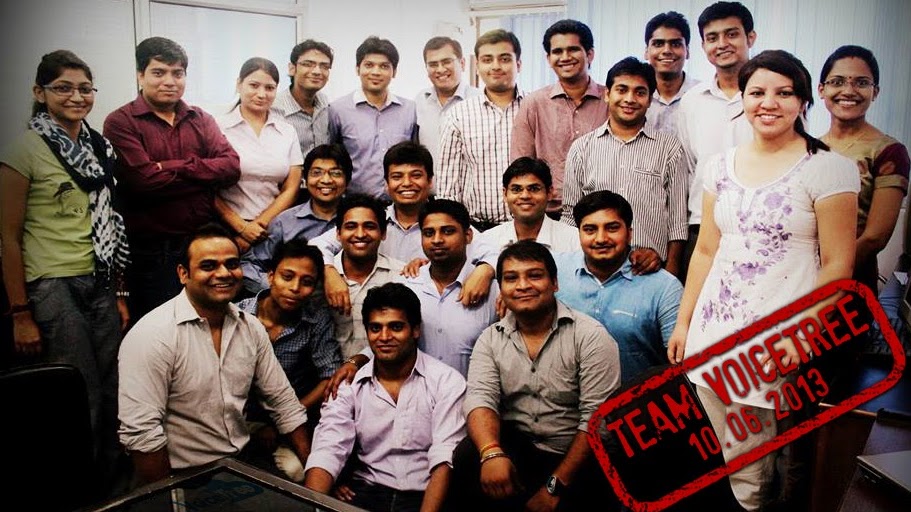Last year we received 1.6 lakh pageviews with over 100 articles on improving customer interactions. But the bottom line remains:
As an entrepreneur I play joker. I try – I fall – I stand up again for the next stunt. Whatsoever, I have to keep everyone entertained.
This article is a part of a 3-article series, where I would share 3 most vital lessons as I grew as an entrepreneur, our product grew as an offering and our team grew into a force.
Lesson 1: Don’t hire. Build a team.
Lesson 2: Sell to learn. Learn to sell.
Lesson 3: Karma matters. Stay positive.
Four years journey of Entrepreneurship has probably taught me more than 20 years of education. From the initial days of VoiceTree with not-much-movement to today’s race of “scale, scale and scale” things changed fast. From a small team of 7 to the current team of 70, we learnt why processes are made in any organization. We tackle hiring challenges as we grow and realise the role of maintaining team motivation with time. We address the need of finding more sales channels. But in all this, here’s what consistently counts.
1. Happiness metric
One thing you should always ask your team is, “Are they happy?”. Happiness is the single most important prerequisite for sustainable performance in any organization. If you are not happy you cannot build a worthy product, do a good sale or even provide that great customer support. Karma matters. The way you treat your team is the way your team treats your product and customers.
VoiceTree was a team of 7 people 2 years back, and we still have 6 people out of them. Once we made sure of the happiness with our initial team, it became a part of the company culture and it spread to everyone who joined us. We have people who would not leave the company for appraisals or hike. We have people who would work for multiple days and nights in the row. No amount of money or benefits can improve the performance of an individual, the way happiness metric can.
2. Facilitate initiatives
As a founder, I happily choose myself to be the Chief Happiness Manager. When I feel that the happiness metric is going down, I do a open house session to let everyone speak. Last month I facilitated a game in the office where I asked my team to choose someone amongst them as a CEO for 15 minutes. Rest of the team were supposed to ask questions or share problems with the new CEO. This allowed them to open up and talk more. The best part, however, was that they were finding solutions by themselves.
Most problems in an organization are due to lack of communication. When you let your team open up and share problems, things get resolved faster than people can imagine. Founders need to communicate their vision, trust and even their problems, openly with their team. Trust your team with transparency and your team will trust you more.
3. Build with positive energy only
You cannot build a great organization with any negative energy. As a founder I always keep myself motivated and positive. There are bad times, tough decisions and even emotionally very low points. But I try not to bring this to my team. As an entrepreneur I play joker. I try – I fall – I stand up again for the next stunt. Whatsoever, I have to keep everyone entertained.
Happiness is something we could have never measured. But eventually it came back to us as our karma with customer reviews, team reviews and an awesome product that we could not have built without an awesome happy team.



